02:10
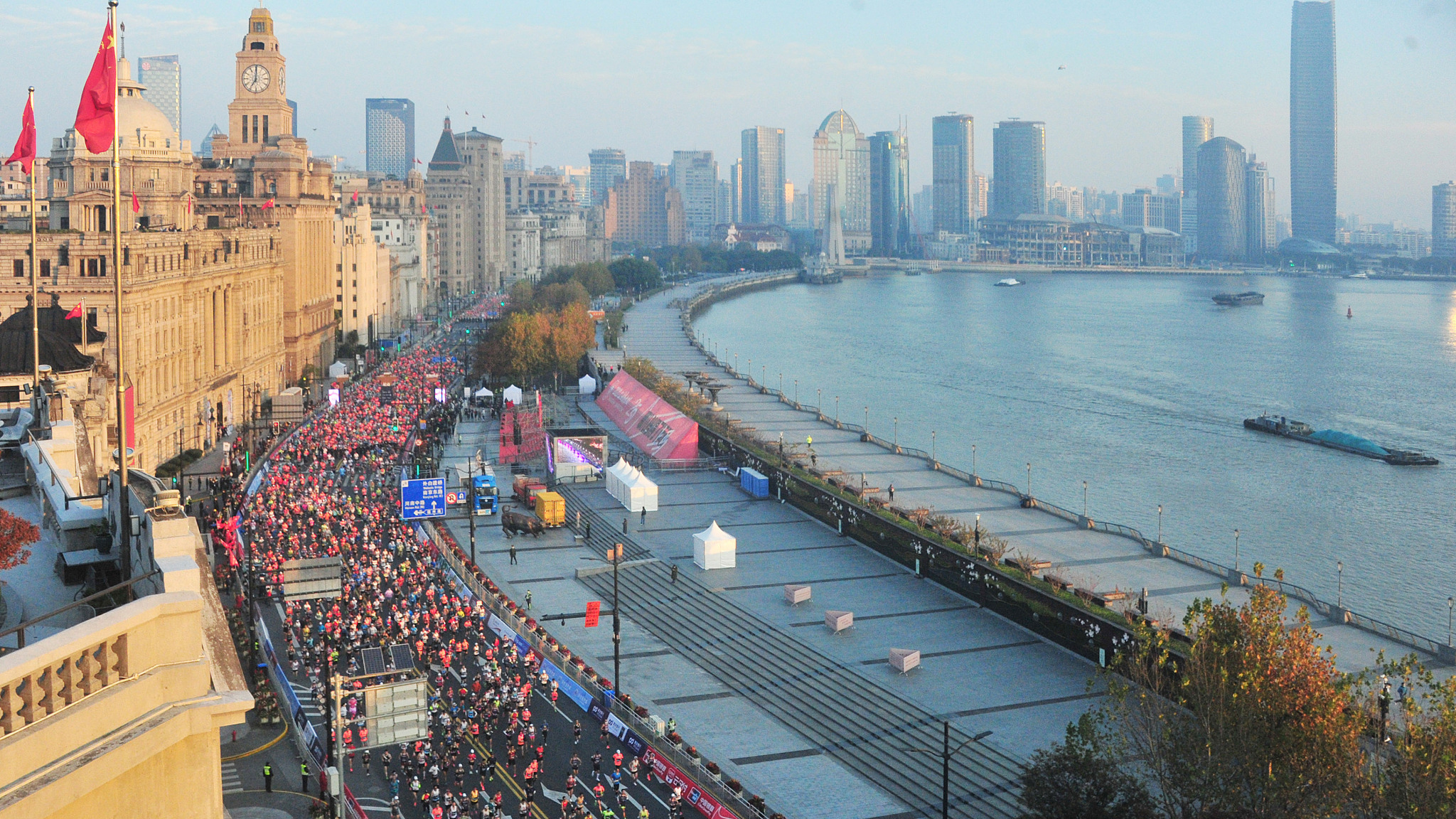
The 2020 Shanghai International Marathon, the only Platinum Label road race worldwide to run as usual this year amid the COVID-19 pandemic, got underway early Sunday morning.
However, only around 9,000 runners – less than one-third of the event's usual number of participants – are racing this year in order to reduce the risks imposed by the coronavirus and the organizers have not invited elite international runners.
This is the first Shanghai International Marathon since it was given the Road Race Platinum Label by World Athletics, the sport's governing body. And, despite the downsizing, organizers tried to ensure participants enjoyed a safe and unforgettable experience.
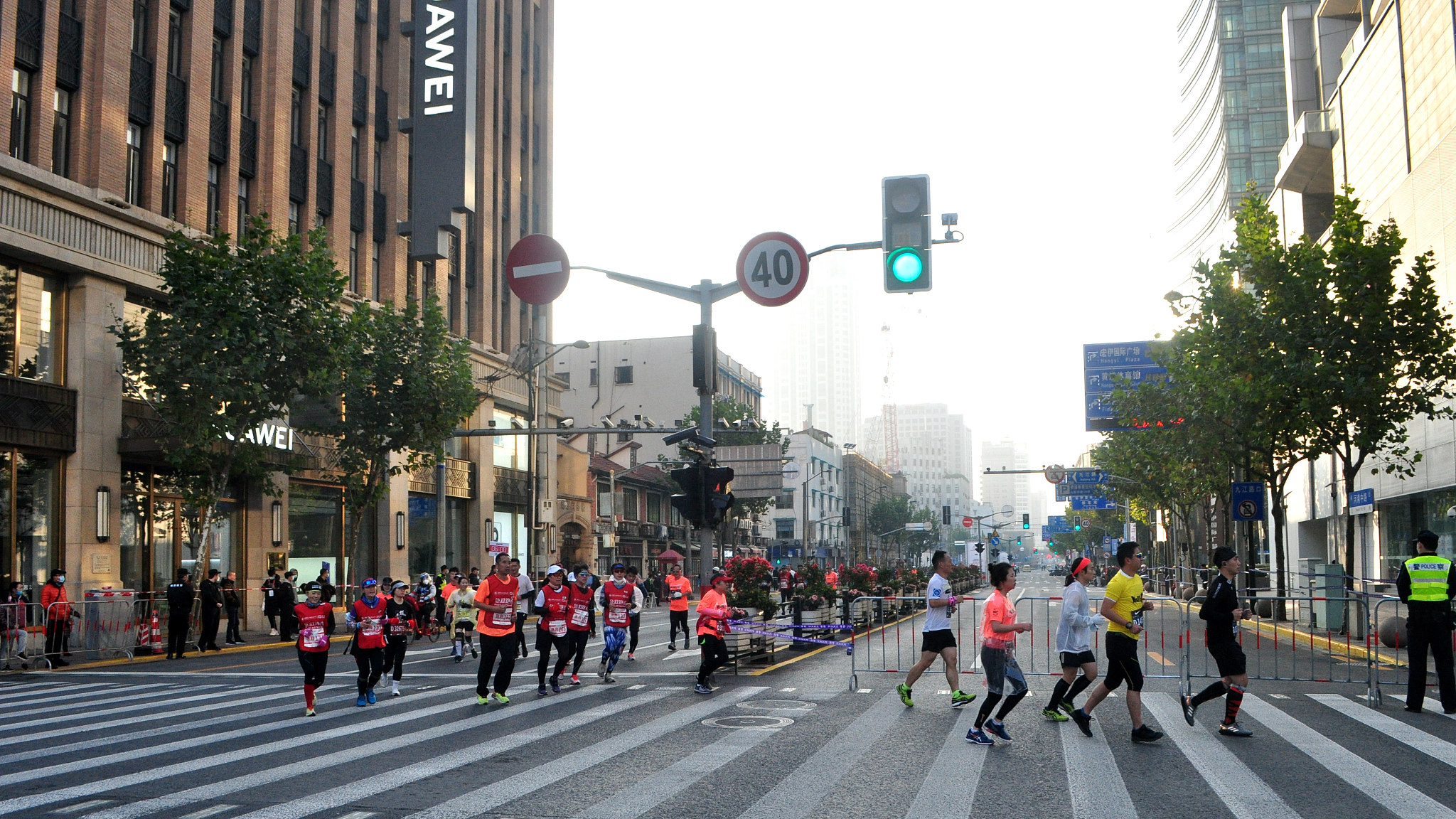
Runners in the 2020 Shanghai International Marathon start the race early Sunday morning in Shanghai, China, November 29, 2020. /CFP
Runners in the 2020 Shanghai International Marathon start the race early Sunday morning in Shanghai, China, November 29, 2020. /CFP
'We have to prioritize safety and play safe'
This year is the 25th anniversary of the Shanghai International Marathon, but it was very different from the past due to the pandemic.
"We initiated the whole pandemic control and prevention work as far back as May this year," said Zhou Jin, one of the event's organizers.
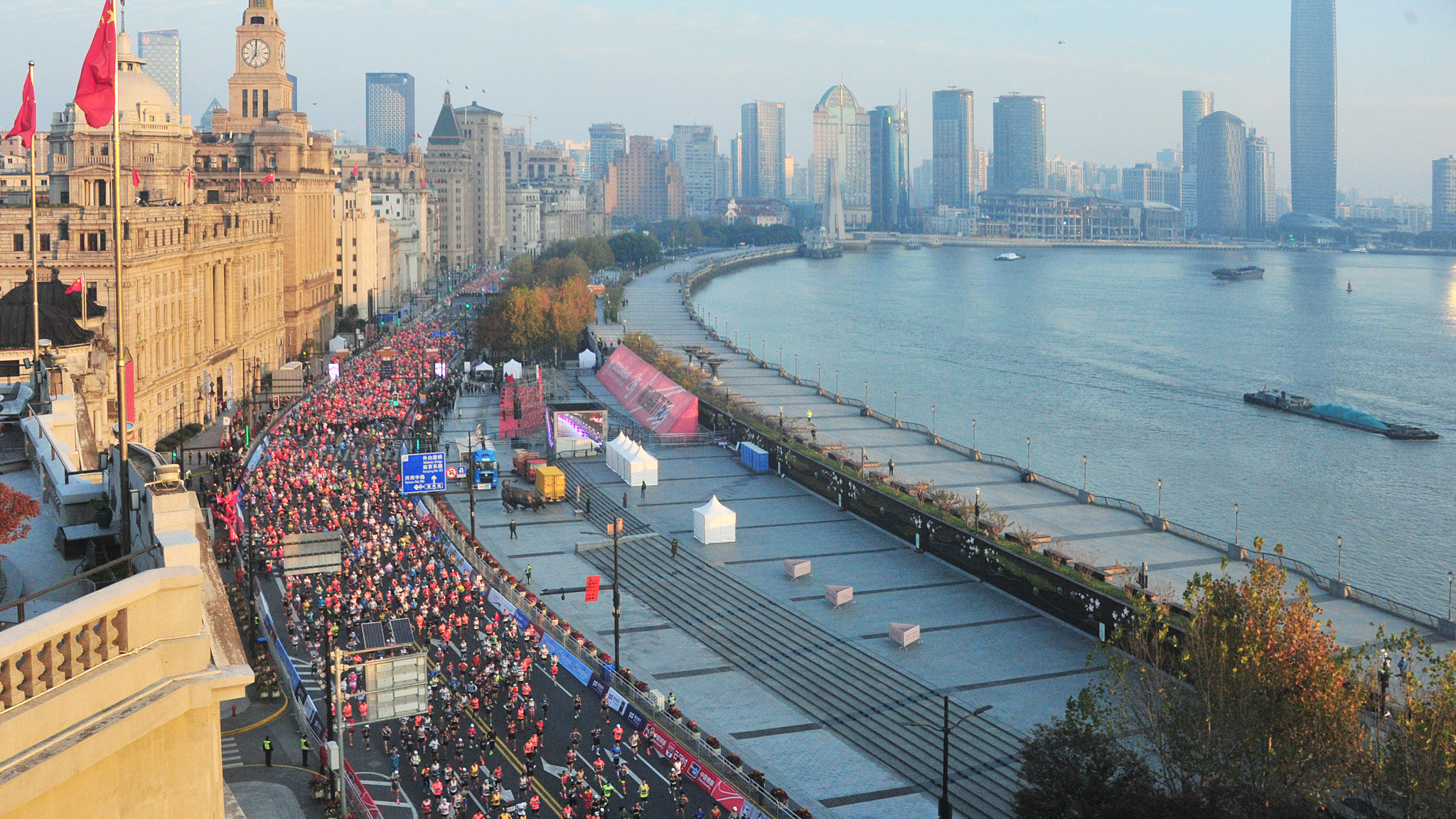
Runners in the 2020 Shanghai International Marathon densely dot the Bund in central Shanghai, November 29, 2020. /CFP
Runners in the 2020 Shanghai International Marathon densely dot the Bund in central Shanghai, November 29, 2020. /CFP
Zhou said the organizers have been working with local COVID-19 specialists to set up a screening system to ensure that all the registered runners tested negative for COVID-19, and that they had not traveled to high-risk regions in the past two weeks.
"We've been in touch with the pandemic prevention specialists in Shanghai on setting up the whole control and prevention procedure in order to work out every detail."
Professor Zhang Wenhong, director of the Department of Infectious Diseases at Fudan-Huashan Hospital in Shanghai, was determined that the marathon would be run successfully. His confidence came from the strict control of every detail.
"We assigned a huge number of staff for the event and only those who had been received COVID-19 nucleic acid tests can work for the event," said Zhou. More than 6,000 people had been tested to work in support of the race, and many more were assigned to posts outside the race route, including security personnel and community volunteers.
Part of the pre-race work for the organizers was to identify qualified runners from those who have traveled through or lived in medium- to high-risk regions.
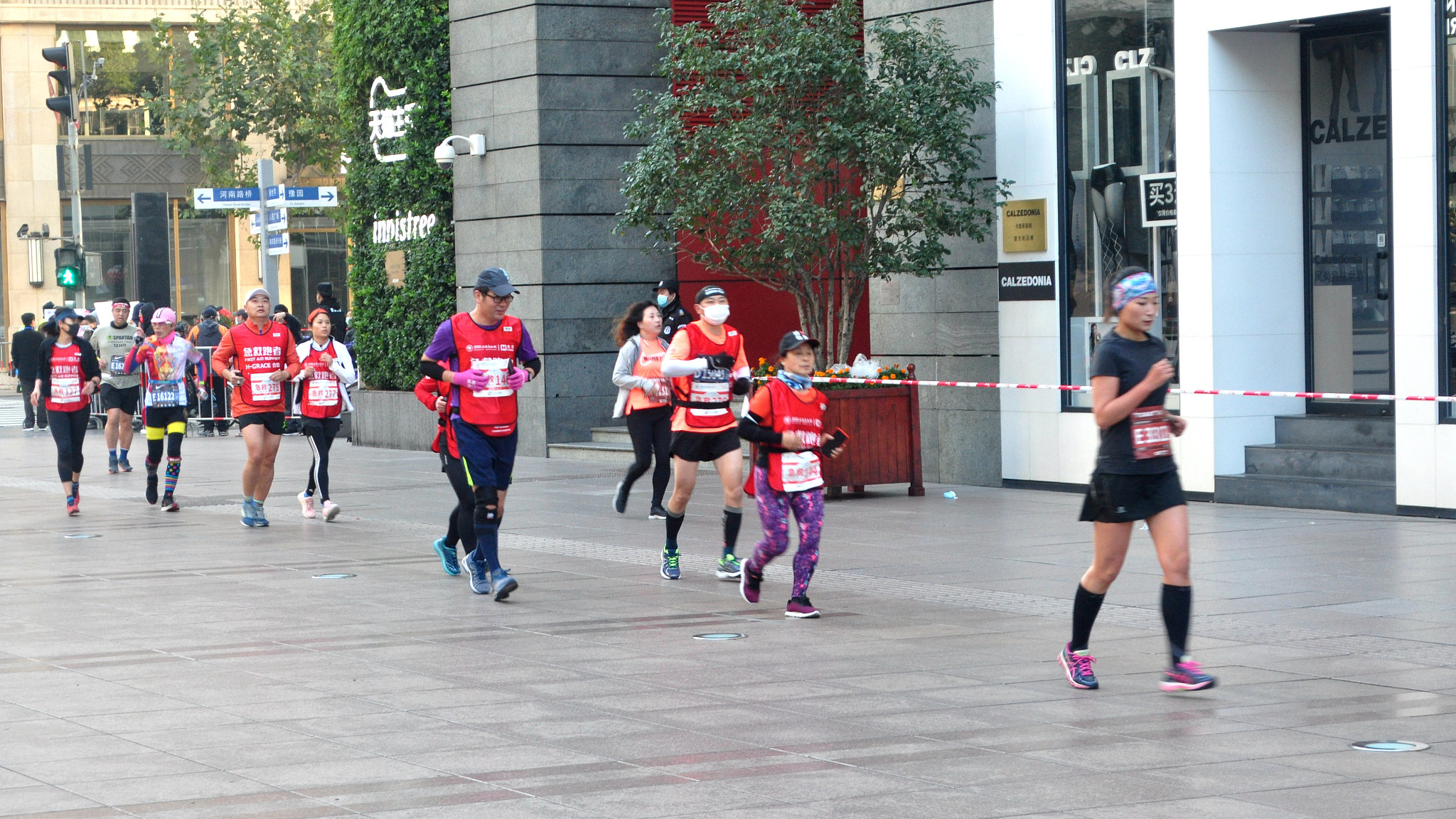
Runners in the 2020 Shanghai International Marathon, Shanghai, China, November 29, 2020. /CFP
Runners in the 2020 Shanghai International Marathon, Shanghai, China, November 29, 2020. /CFP
"We persuaded some risk-related participants to quit. And we hope runners can understand as we have to prioritize safety and play safe," said Zhou.
Moreover, participants were asked to check their temperatures and report to the organizing committee every day 10 days. Those who failed the temperature test could not take part in the event.
Real test begins when runners line up
All participants were required to wear masks and keep social distancing when they arrived at the event.
One of the important reasons to downsize the number of participants was to allow the event organizers to mark different starting points for each runner, allowing them to maintain social distancing from the beginning of the race, instead of the usual crowded mass start.
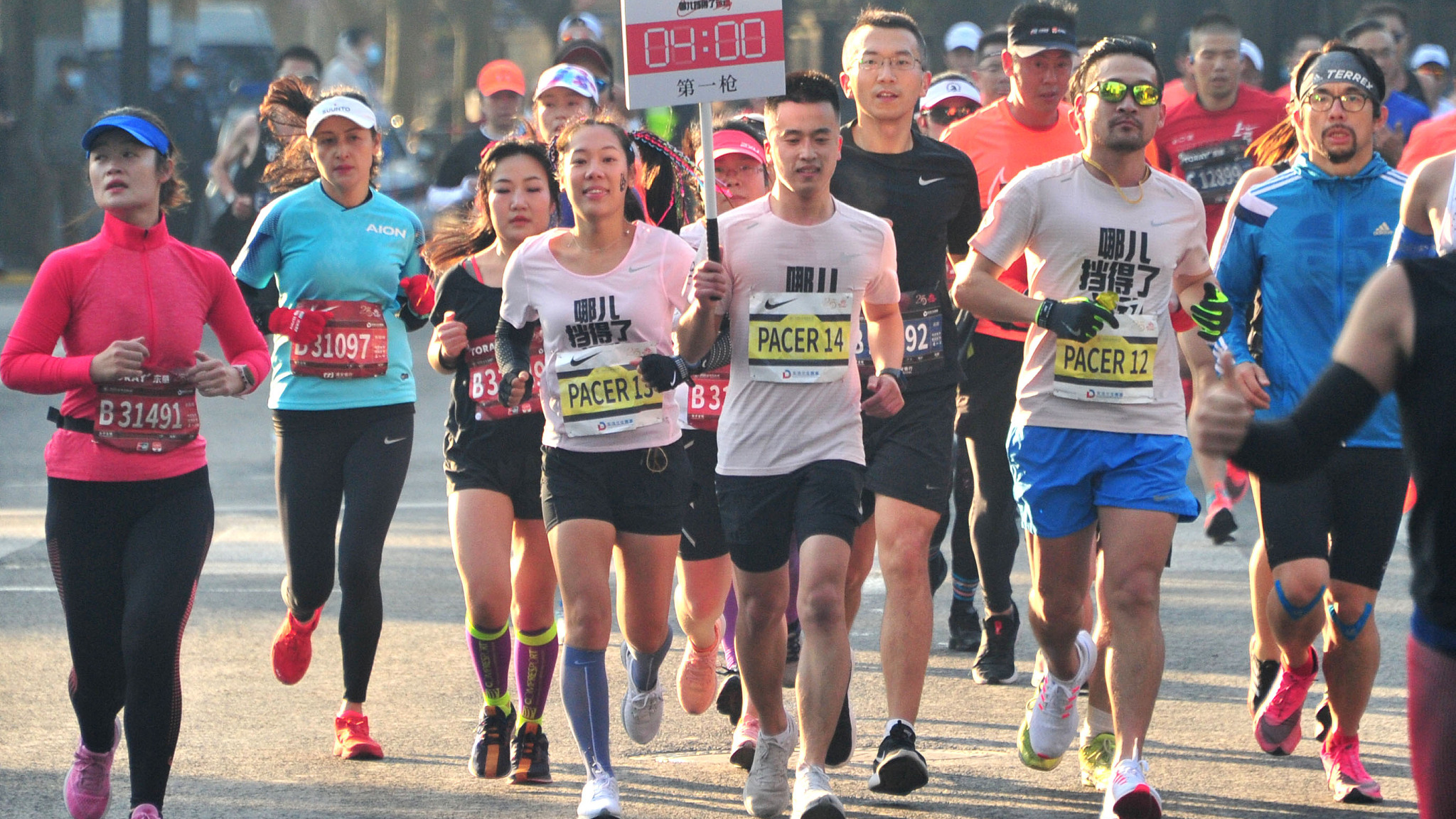
Runners in the 2020 Shanghai International Marathon, November 29, 2020. /CFP
Runners in the 2020 Shanghai International Marathon, November 29, 2020. /CFP
Instead of having only one starting pistol fire, there were three this year to divide the runners into different groups.
The supply stands also stretched longer, allowing runners to safely pick up water, chocolates and energy snacks during the race.
Volunteers were ready at the finish line to offer hand sanitizers and remind runners to follow social distancing rules.
Runners who finished their race and rested for at least three minutes to bring their heart rates back to normal were given face masks, which COVID-19 prevention and control codes required them to wear.
This year's Shanghai International Marathon is the first since the event was categorized as a Platinum Label road race. For runners, organizers and audiences alike, it served as a positive signal of China's continuous efforts to overcome the pandemic.

